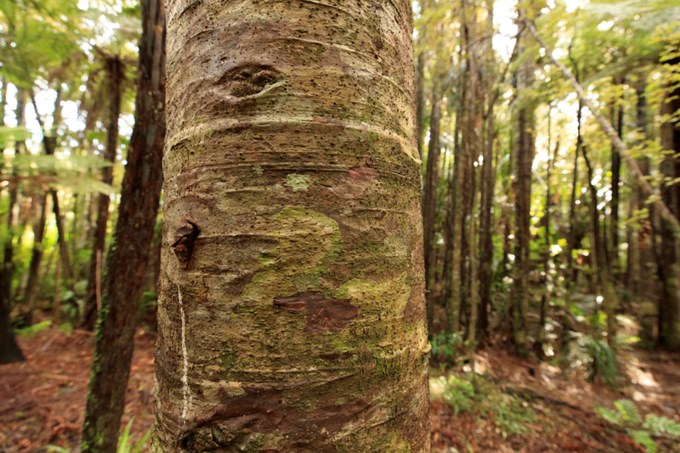Kauri Park on Auckland’s North Shore has been temporarily closed to the public after a tree in the park was confirmed to have kauri dieback disease.
The tree in question was identified during Auckland Council’s ongoing surveillance programme of kauri dieback across the region, which has most recently been focused on the northern section of Auckland. These have followed aerial surveys in the area by the council with the Ministry for Primary Industries.
Kauri dieback discovery incredibly disappointing
Auckland Council Biosecurity Manager Phil Brown says it is incredibly disappointing to have the disease confirmed in an area previously thought to be free of the disease.
“This detection is a blow to an area of high-value kauri. Today signals an initial infection, but we are also waiting on results of testing of other kauri in the park.
“We are acting quickly and will be closing the park today, while we await further results and develop a plan for managing this response. It is crucial that we limit immediate use to confirm mechanisms to manage the risk in the area.”
Risk assessment to be carried out
While the track that connects Kauri Road and Balmain Road will be included in the closure, as it is a key connection a risk assessment will be carried out, and it will be a priority for reopening when it is confirmed to be safe for use.
“From what we know about the incubation period for this disease, this tree may have been in decline for some years yet not necessarily showing any visible signs of infection,” Phil Brown says.
Kaipātiki Local Board Chair John Gillon says the detection of the disease in the local board area is a concern.
“As a local board we have been working really hard to ensure that protection measures for kauri in our area are a priority, and while this confirms our worst fears, we are determined to do all we can with the council and the community to stop further spread.”
“I ask that the community please respect the closure in place while further investigation is carried out. We all need to do our part to keep this from spreading to other parks on the North Shore.”
Infection on North Shore 'devastating': councillor
North Shore Ward Councillor Richard Hills says, “I'm devastated to hear this disease has been found in precious native bush that is of vital importance to our community.
“We have been working with the biosecurity team and the local board to ensure Kaipātiki kauri are protected as a priority."
An additional $100 million for kauri dieback protection was secured through the recent 10-year Budget process.
"This funding is now needed more than ever as we accelerate and expand our work to tackle this threatening disease.”
Track closure signage will be installed today (27 July) and additional footwear cleaning stations and other mitigation measures for the Kauri Park area are being assessed.
Visitors to any kauri forest should always clean their footwear and equipment before entering kauri areas and after leaving, and should use any footwear cleaning stations they encounter on their visit. They should also always stick to designated open tracks.


